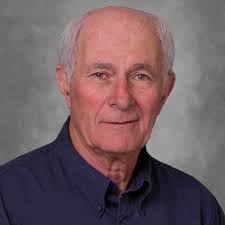Americans love anniversaries whether it is the birth of our nation on July 4th, our parents 50th, Pearl Harbor or 9/11. The year 2025 has a number of significant anniversaries of laws that have changed American society in uncountable ways.
On August 14, 1935, in the height of the Great Depression, President Franklin Delano Roosevelt signed Social Security into law. Opponents fought long and hard to stop passage calling it “Socialism.” Ida May Fuller received the first Social Security check for the grand sum of $22.45.
July 30, 2025, is the 60th anniversary of the historic signing of Medicare and Medicaid into law by President Lyndon Johnson. The ceremony took place at the Truman Library in Independence, Missouri, and Harry Truman got Medicare card #1.
His premium for Part B was $3.00 per month. LBJ spoke only about Medicare and declared it a memorial to the slain JFK. Medicaid was an afterthought, added at the last moment before the law was passed by a divided Congress, and was intended to be a modest program with minimal financial impact.
Congressional opposition was fierce calling it, once again, “Socialism”. The Arizona Health Care Cost Containment System (AHCCCS) is Arizona’s unique and successful Medicaid program.
It was July 26, 1990, President George H. W. Bush signed the Americans with Disabilities Act into law. The event took place on the South Lawn of the White House and the President considered it an extension of the Civil Rights Act of 1965.
He said, “Let the shameful wall of exclusion finally come tumbling down.” The signing was the culmination of a quarter century of advocacy by and for the members of our society with disabilities. Some opponents called it “Socialism.”
Can you believe it has been fifteen years since President Barack Obama signed the Affordable Care Act into law on March 23, 2010. I don’t believe I need to recount the battles leading up to the passage and later battles to “Repeal and Replace”. Opponents, when not talking about “Death Panels”, even called it “Socialism.” Rejecting the call to repeal was one of Senator John McCain’s finest hours.
As we celebrate the 90th anniversary of Social Security, the 60th anniversary of Medicare and Medicaid, the 35th anniversary of the ADA, and the 15th anniversary of the ACA, remember that the passage of these five laws took years of effort, advocacy, and politics to achieve the end result of passage.
Don’t forget that once the laws were signed, the political battles did not end. Stay tuned for the 2025 political battles and the repeated use of that 90-year-old pejorative, “Socialism”. The debate has not ended and will not end in our lifetime.
Leonard Kirschner MD, MPH
AHCCCS Director (1987-1993)
Past President AARP Arizona








